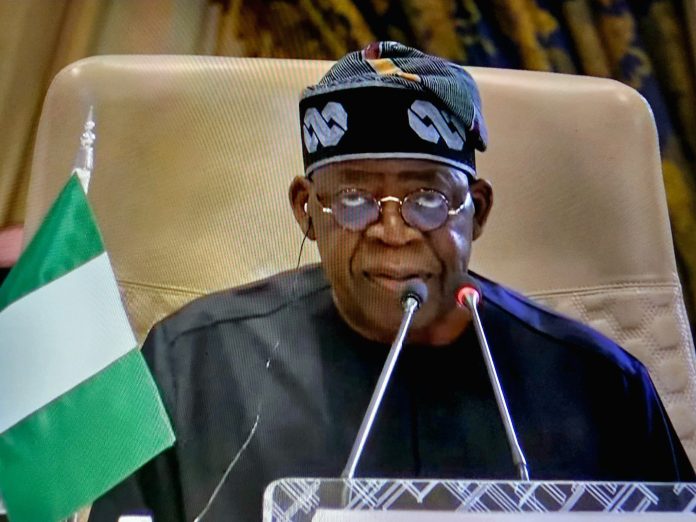Former member of the House of Representatives from Benue State, Mark Gbillah, has questioned President Bola Ahmed Tinubu’s approach to the ongoing attacks in the state, suggesting that the President may know the perpetrators if he is calling for reconciliation and harmonious coexistence with them.
Gbillah made the remarks on Monday during an appearance on Arise Television’s *Morning Show*, where he criticized the Federal Government’s response to the mass killings in Yelewata, Guma Local Government Area, which claimed over 200 lives.
He specifically took issue with the President’s characterization of the incident as a “reprisal attack,” stating that such language indicates the President is either misinformed or not receiving accurate intelligence on the crisis.
“Mr President, I want to use this opportunity to emphasize the fact that there’s a war against people in a part of your country,” Gbillah said. “Let me say that there’s an old adage, even in several cultures, you cannot beat a child up and stop the child from crying.”
He further lamented the Federal Government’s handling of peaceful protests in the state:
“When our people cried out when we embarked upon our legitimate constitutional duty to protest, we were confronted with tear gas, with scores of personnel who, from nowhere, came out, who are not able to confront these killers, but are able to confront protesters. We saw helicopters hovering over protesters, helicopters that we did not see go to Gwer West and intercept the people.”
Referencing the President’s recent statement, Gbillah expressed concern over its implications:
“I have to point out immediately now what was shocking and of a concern to me in the statement made by Mr. President. And let me quote very clearly, Mr President, first of all, mentioned that he has asked that an implementation of his earlier directive, meaning he gave an initial directive that apparently was not followed. He has to now give a follow up directive—that is one.
“Number two. He is saying that in the latest round of reprisal attacks—reprisal attacks. Mr. President, it appears as if some people are not giving you the right information. Mr President is being misinformed and ill advised. There is no such thing as reprisal attacks going on. Our people are under siege.”
The President had, through his Special Adviser on Information and Strategy, Bayo Onanuga, instructed Governor Hyacinth Alia to convene reconciliation meetings and promote dialogue among warring parties in the state. Governor Alia, during an interview on Channels Television, also described the killings as possible reprisal attacks by suspected armed herders entering from neighbouring Nasarawa State.
Gbillah challenged this narrative, stating:
“Mr President asked the governor to convene reconciliation meetings and dialogue among warring communities—sorry, warring parties—those are the words used by Bayo Onanuga—and then seek harmonious existence between farmers, herders, and communities.
“There is no such thing as reprisal attacks. If you say, seek harmonious relationship and have reconciliation meetings, that means, Mr President, you know who has attacked us. That means the governor knows who has attacked us and is supposed to call them together for a meeting. That is what I deduce from that statement, and that I believe is disingenuous to the situation. There is no such thing as reprisal attacks. I will repeat for the uptenth time. These are premeditated, unprovoked attacks against the people.”
Gbillah concluded by calling for honesty and accountability in addressing the crisis.
“I’m aware that there seems to be a lot of sycophancy in the country right now. So Mr. President, with all due respect, if you need to be told the truth, you can ask us, the people. Some of us can come and tell you what is actually going on. You can liaise with our governor. I believe he should be honest enough to tell you the truth.”
The former lawmaker’s comments add to the growing national concern over the Federal Government’s handling of the security situation in Benue State and the language used to describe the ongoing violence.
